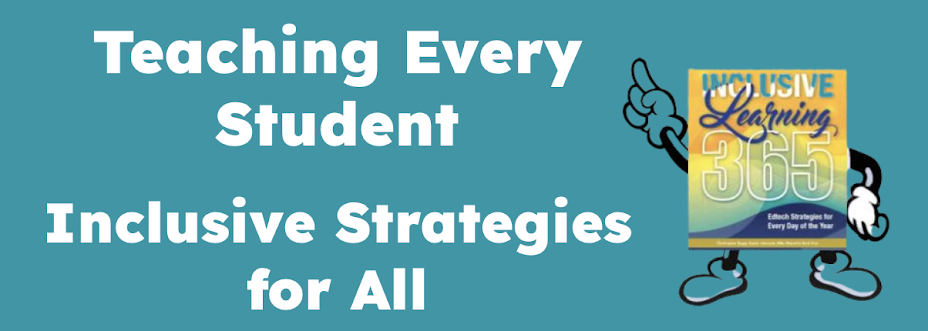We are living in a time of drastic paradigm shifts and revolutionary game changers. Social media (read/write web) is an invaluable game changer and allows me to access great educators throughout the world. I have learned more in the past few years because of new media and have developed a Personal/Professional Learning Network (PLN) as a result.
Ira Socol is one of the most brilliant members of my PLN and today I refer you to two of his recent blog posts filled with practical recommendations for classroom instruction change and home/school communication change.
The tools are readily available - back channel conversation tools, text-to-speech, speech recognition, Do Not Disturb signs (a personal favorite), Google Calendar, Google Docs, etc. Read how Ira recommends using these tools to promote student engagement and learning. His ideas incorporate "21st century teaching" and Universal Design for Learning to benefit all students. As always, he says it better than I ever could.
Tuesday, August 24, 2010
Monday, August 02, 2010
A Better Search - Beyond Google
What are the best tools for students' Internet searches? We know our students are comfortable with technology; unfortunately, that doesn't always translate into knowing what is best for their learning and productivity. For example, when our students search Google, they often indiscriminately choose one of the first two or three sites when looking for information.
Better search engines exist for academic use.
Prolific teacher/blogger Richard Byrne at Free Technology for Teachers highlights seven search engines created for student use. Check out his blog post for descriptions of each search engine.
Better search engines exist for academic use.
Prolific teacher/blogger Richard Byrne at Free Technology for Teachers highlights seven search engines created for student use. Check out his blog post for descriptions of each search engine.
- Sweet Search - a search engine for students where "every web site has been evaluated by our research experts"
- Kid Rex - "Safe search by kids, for kids!" (what's not to love about a site which includes a T-Rex on it's home page?)
- Ref Seek
- Fam Hoo - calls itself the "family friendly" search engine
- Ask Kids
- Wolfram Alpha - the "computational, knowledge engine"
- Google Scholar
Subscribe to:
Posts (Atom)
